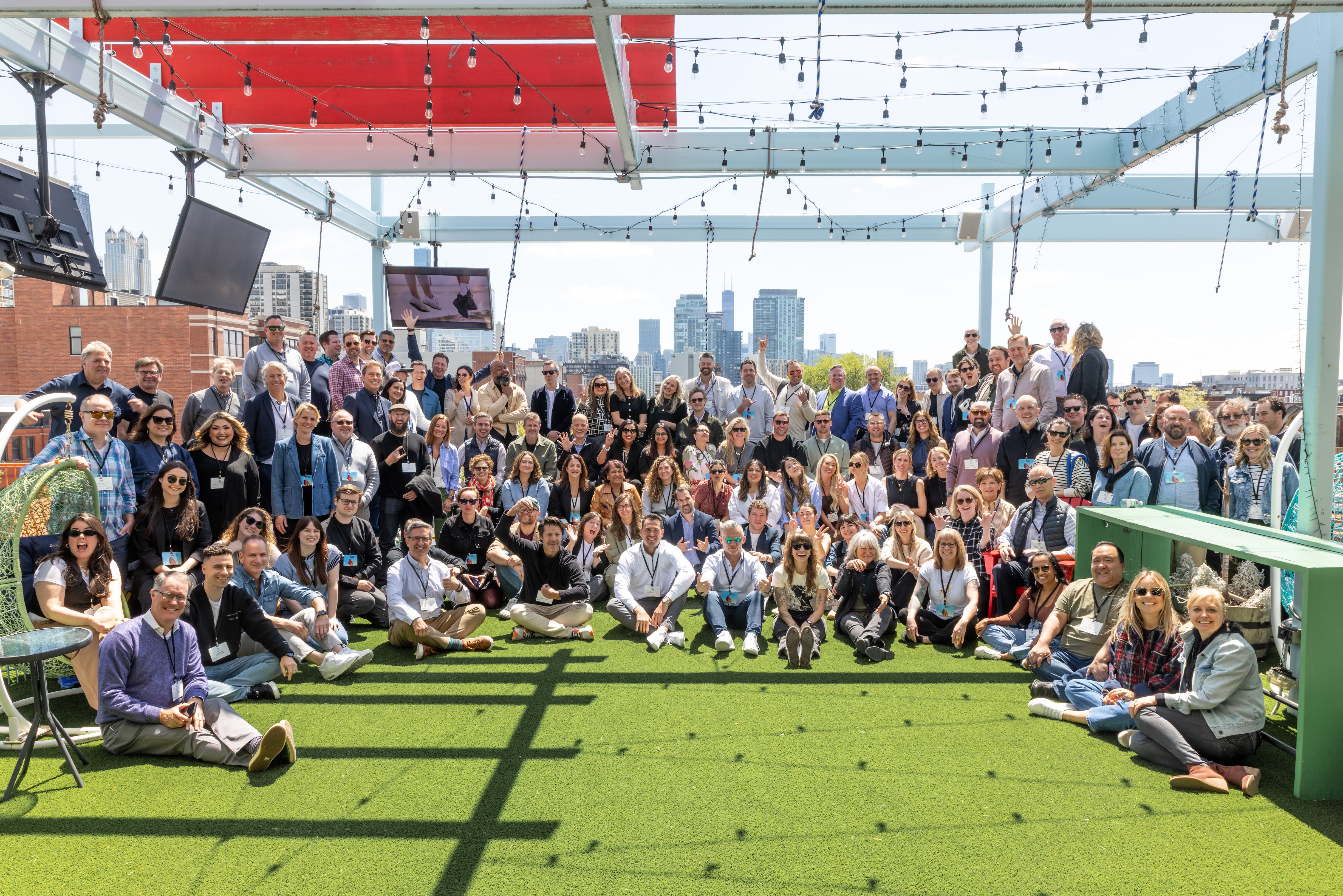In an industry dominated by holding company giants, one global network has spent nearly nine decades proving there is another way to deliver multinational marketing solutions. John Harris, CEO of Worldwide Partners, explains why independence and collaboration remain the network's driving forces and why clients are increasingly taking notice.
The reverse holding company model
"The network doesn't own the agencies, the agencies own the network," Harris explains, outlining the fundamental difference between Worldwide Partners and traditional agency networks. "It's set up as a reverse holding company. As the CEO, I'm accountable to a board of directors of ten agency leaders from around the globe. Rather than the network dictating the terms to the agencies, the agencies dictate the terms to the network."
Founded in 1938 by five independent agencies on America's west coast, Worldwide Partners began with a simple premise: collaboration could help independent agencies compete with the New York advertising establishment. Nearly nine decades later, that founding principle remains intact, though the network has evolved considerably.
Today, the network comprises over 90 agencies across 50 countries, a third of which are specialist agencies spanning pharmaceutical marketing to sports, PR to experiential, agriculture to B2B. This diversification strategy has been deliberate, responding to changing client demands and market dynamics requiring expertise by market, vertical and capability.
"In the past, if you were not an integrated agency and a client came to you and said 'we understand your creative capabilities, but can you do PR?' and you said 'no, but I'll bring in a partner' - clients were hesitant. But now clients have become more comfortable with independent agencies partnering within a network solution," Harris explains.
The shift came as clients began to question agencies that positioned themselves as experts in everything. "After many years of clients being frustrated with agencies who said they could do everything but then couldn't, they began to recognise that if I can bring in an agency who's going to best source a model for me, bring in the best PR agency, the best experiential agency, the best research company - and they're going to manage and centralise it for me, then they said, 'okay, I'm open to this'."
Worldwide Partners fuels growth for brands through access, flexibility and partnership. With more than 90 agencies in 50 countries, the network provides clients with on-demand access to world-class talent, capabilities and creativity. Service models are built around the way clients want to work, making everything easy. And because the agencies own the network, clients always feel the agencies’ shared commitment to put their business first.
Independence as competitive advantage
While holding companies position themselves as one-stop shops through acquisition and consolidation, Harris argues this approach often fails to deliver true integration.
"Consolidation doesn't naturally translate to integration," he says. "You can bring all these agencies under one roof, but if you don't have the spirit of collaboration at the centre to drive the integration clients need, then consolidation is nothing more than a financial measure."
The network's independence-focused model creates fundamentally different priorities. "The only real accountability that the agencies have is to the clients and to their employees. They're not beholden to shareholders of a publicly traded holding company, which prioritizes shareholder return.
This distinction manifests in practical ways that benefit clients. "When you're an independent agency, you have the licence and the flexibility to do the right thing for your clients first and foremost," Harris explains. "Where we're similar to the holding companies is we have the global scale and diversified capabilities that mirror and match what the hold cos have. But it’s being delivered through independent agencies who are working together because they have chosen to, not because they are required to.”
The ideal client fit
Harris is refreshingly clear about which clients best suit the network's approach. "We're not going to convince Procter & Gamble or Coca-Cola or the advertisers who are spending a billion pounds in media to hire us to manage their global media account. They're going to go to a holding company."
Instead, the network targets what Harris calls "the marketing majority" - brands spending £100 million or less on media, which is most brands. "From a global or country-level media perspective, for those clients who are spending less than £100 million pounds, we are a much more effective and relevant solution. They are going to get our best talent pushed up against their business. We will negotiate aggressively on their behalf, and we're not beholden to principal media inventory that we've acquired and must resell to clients."
The network also excels with global brands operating in decentralised environments who value local market expertise. "Rather than going to a holding company and running a pan-regional campaign out of Singapore with someone from the UK who was promoted to MD of the Asia Pacific region, we thrive with clients that recognise Asia is a very diverse market and therefore need an in country agency in China, in Japan, in Korea, in Vietnam."
This approach prioritises effectiveness over efficiency. "They recognise that the effectiveness of a local campaign is more important than the perceived efficiency of a global campaign," Harris explains.
Founder-led brands are another area in which the network thrives. "There aren’t many holding company agencies where you're going to get to work with the founder. That founder-to-founder relationship, where the head of a direct-to-consumer brand gets to work with the founder of an independent agency, you've got entrepreneur to entrepreneur. We thrive in those environments."
Meeting future challenges
As holding companies consolidate further, including the IPG-Omnicom merger and WPP's ongoing consolidation, clients are increasingly concerned about implications for their business.”'What does this mean for the talent that I've had working on my business?'" Harris observes. "In these mergers, efficiencies are going to have to be found. And the biggest expense they have outside of real estate is people. Top talent will be made redundant and clients will be left working with more junior talent."
This uncertainty is driving more clients toward independent agencies, making Worldwide Partners' proposition increasingly relevant. "We've been doing this for 87 years and the model is as relevant now, if not more, than it was in 1938."
The network is also helping agencies navigate the AI revolution, encouraging them to look beyond mere efficiency gains. "When a client says 'What's your AI strategy?' the question behind the question is 'How are you leveraging AI to save me money?'" Harris notes.
While acknowledging the importance of workflow and production efficiencies, Harris pushes agencies to reinvest those savings strategically. "We have to get to a place with clients where a portion of the time and the money that we're saving with AI is being put back into strategy and innovation. If we only play this as an efficiency game to cut costs, you can’t cost-cut your way to market share growth."
Collaboration Fuels Ambition
In an industry where collaboration is often promised but rarely delivered, Worldwide Partners' 87-year commitment to this principle may be its greatest competitive advantage. Harris stresses, “The future doesn't belong to networks. It belongs to agencies who can deliver clients a more networked model, where global agency capabilities can be leveraged to access talent in a simple, efficient and integrated manner to support client needs.”



.avif)

.png)
.jpg)

